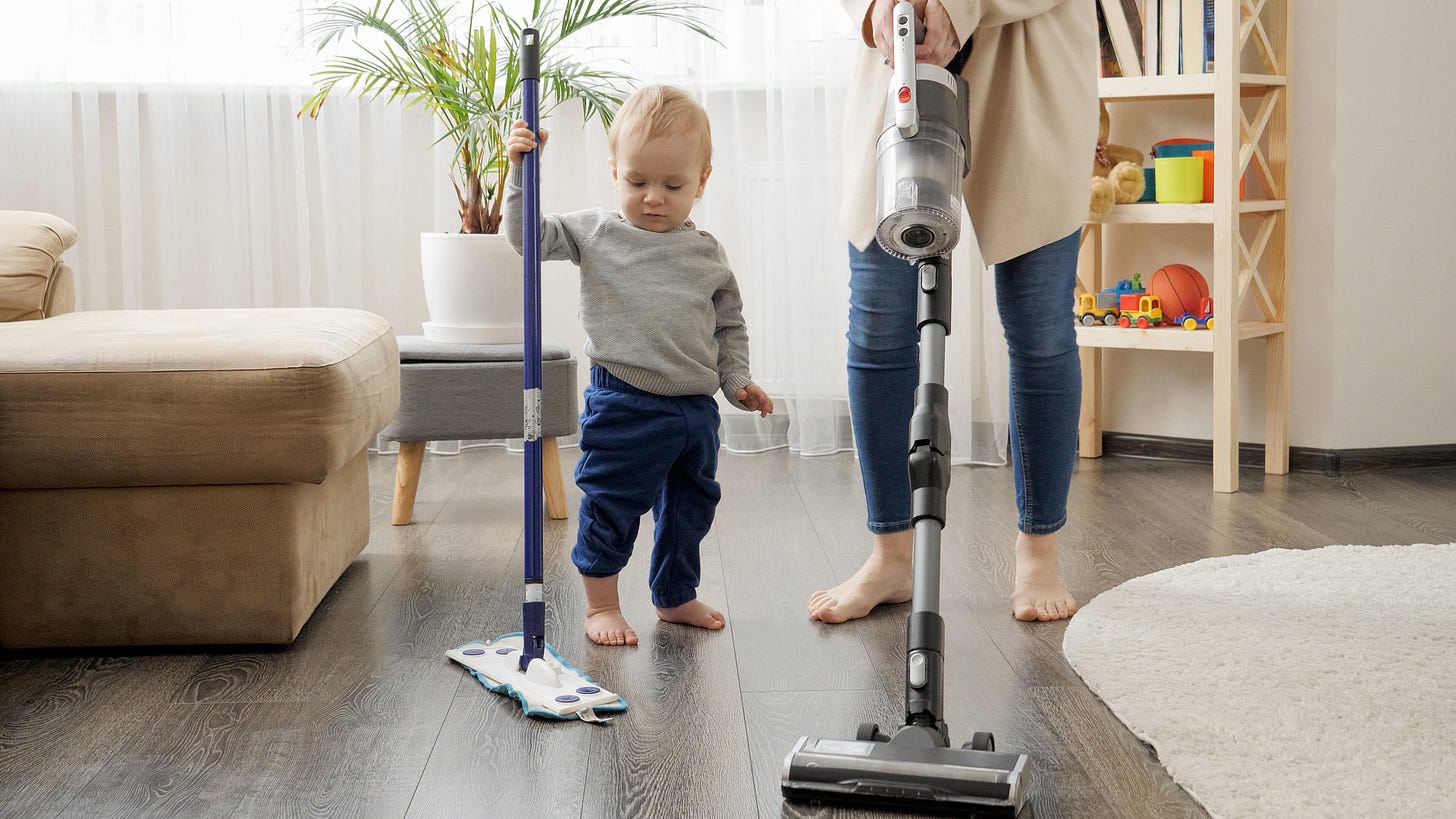The Science of Getting Kids to Help
How parents engage kids really matters.
There is nothing cuter — and, if I’m honest, more frustrating — than little kids who “help” around the house. As a toddler and preschooler, every weekend, my daughter begged to help make pancakes with my husband, and the collaboration made breakfast about four times more work than it otherwise would had been. As developmental psychologists aptly noted in a 2015 paper: “Unfortunately for adults, toddlers’ ‘help’ is not always every helpful. Young children fold, but also unfold, laundry. They load both dirty and clean dishes into the dishwasher.”
Don’t I know it. Perhaps this is why researchers have observed that parents often choose to do household tasks while their children are napping.
Here’s the worst part of it, though: Once kids have developed passable fine and gross motor skills and could actually truly be helpful, they often seem to lose interest in pitching in. And research suggests that this could in part be because of how parents and other adults responded to their interests in helping when they were younger.
When and Why Little Kids Help
Most babies start to try to help their parents before their first birthday, often by handing parents objects they’ve dropped or sharing toys or food with them. But researchers believe that babies and young toddlers don’t help because they want to be helpful; they help because they want to be engage with others. For instance — and you’ll know this well if you’ve ever known a toddler — 2- and 3-year-olds often only help when it’s convenient for them, and their helping is not very reliable. By the time kids are four, they are often helping out of true concern, yet they also start to weigh whether people are deserving of help. They are less likely, for instance, to try to help people who are trying to steal.
This is not to say that all kids develop the same propensity to help. There may be many reasons for individual differences, including temperament and gender stereotypes (girls tend to be more helpful than boys, in part because of what adults of their gender have been modeling, as I’ve discussed here before). But studies find that kids are more likely to try to help when certain criteria have been met.



